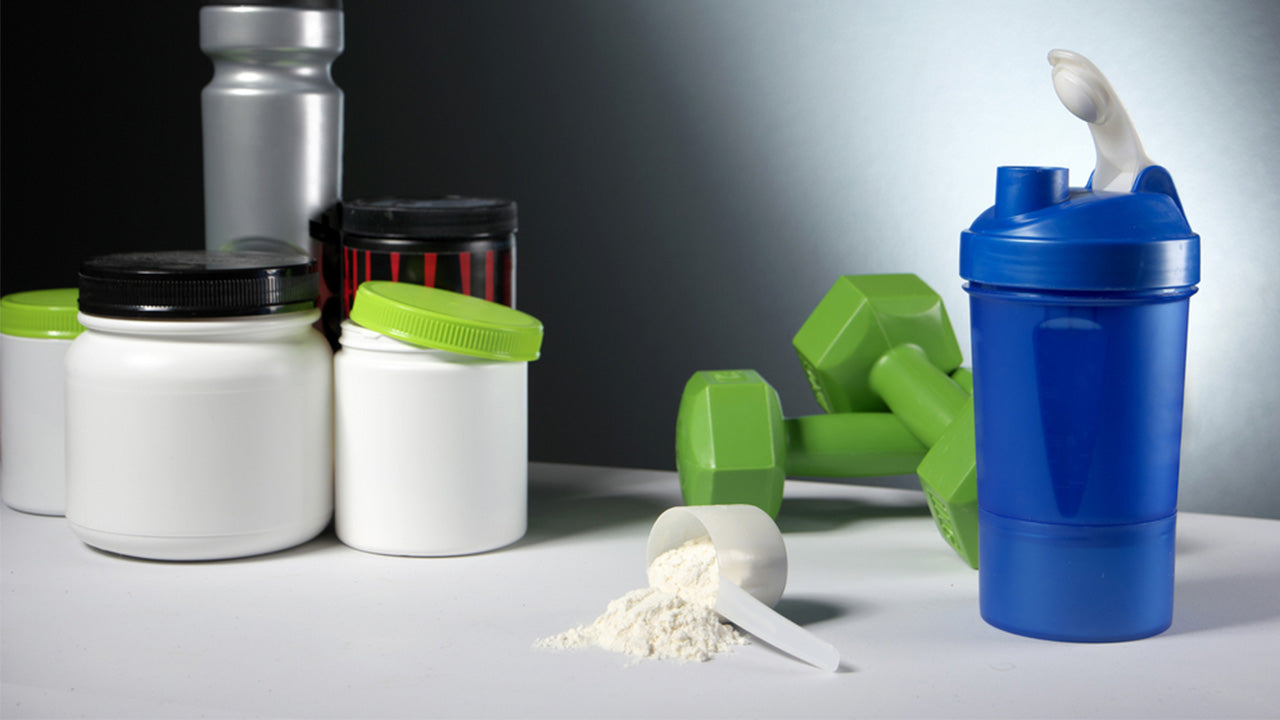Proven Health Benefits of Caffeine and Coffee
 By: by Amino Science
By: by Amino Science

In 1991, the International Agency for Research on Cancer (IARC)—the cancer agency of the World Health Organization (WHO)—declared coffee a possible carcinogen. But then, in 2016, the agency reevaluated the available evidence and removed coffee from its list of possible carcinogens. For all you coffee drinkers out there, that’s probably reason enough to rejoice with a (what else?) cup of coffee. But what about the potential benefits of caffeine and coffee consumption? Is it possible there might actually be some of those as well?
In this article, we’re going to take a look at caffeine and coffee and uncover some of the amazing—and proven—health benefits of each.
Coffee: From Dangerous Brew to Elixir of Life
Believe it or not, there was a time when coffee was blamed for everything from stunted growth to heart disease. But over the past several decades, researchers have poured massive amounts of time and resources into studying this once maligned bean. And what they’ve found has indicated that, far from being the poison brew we were encouraged to give up—or never begin in the first place—coffee may not be that bad after all.
In fact, the vast majority of studies show that coffee may actually be good for you. So good, in fact, that it’s now thought that coffee may actually help prevent the heart disease it was once blamed for causing. And a 2015 study even found that people who drink coffee have a lower risk of death than people who don’t.
But that’s just the tip of the proverbial iceberg. So whatever type of coffee you’re into—darker roast or lighter roast, espresso shots or instant coffee, French press or cold brew or drip coffee—grab a cup and nestle in while we share some of the truly remarkable benefits of the humble coffee bean.
Coffee and Liver Disease
The liver is the second largest organ in the body and performs more than 500 different functions. It detoxifies the blood and stores and metabolizes nutrients—it can even regenerate itself. In other words, the liver is one amazing organ. But it can also become diseased.
When this happens, the liver leaks certain enzymes into the blood. However, a 2015 study found that people who consume 3 or more cups a day of either regular or decaffeinated coffee have lower levels of these enzymes. The finding that decaf coffee was as effective as caffeinated coffee is especially interesting, as some earlier studies had postulated that the protective effects of coffee were related to its caffeine content.
In addition, a 2017 study found that daily coffee consumption can help protect against liver cancer as well as “chronic liver disease secondary to alcohol, viral hepatitis, and fatty infiltration.”
So while these studies show that we have yet to discover which of coffee’s more than 1,000 components (more than a thousand in one tiny coffee bean!) are responsible for its beneficial effects, researchers agree that drinking coffee has a healthy effect on liver function.
Coffee and Parkinson’s Disease
According to the Parkinson’s Foundation, approximately 60,000 Americans are diagnosed each year with Parkinson’s disease—a condition that leads to progressive decline in central nervous system (CNS) function.
Although previous studies (including a 2010 review) hypothesized a link between caffeine levels in coffee and reduced Parkinson’s disease risk, a brand new study out of Rutgers has found that a combination of caffeine and eicosanoyl-5-hydroxytryptamide (EHT)—a fatty acid derived from the neurotransmitter serotonin—helps prevent the buildup in the brain of proteins associated with the disease. And researchers suggest this may help slow or even stop the progression of Parkinson’s.
Coffee and Alzheimer’s Disease
Building on the previous section, a 2017 study found that EHT may help prevent the impairments associated with Alzheimer’s disease. Likewise, a 2002 study demonstrated that caffeine consumption is inversely associated with rates of Alzheimer’s.
However, a review from 2010 found that drinking 3 to 5 cups of coffee each day can reduce the risk of Alzheimer’s disease by 65%. By contrast, consumption of oolong tea, black tea, and green tea showed no such association (although researchers did include one study that demonstrated a link between tea—but not coffee—consumption and decreased rates of cognitive impairment and decline). This led the researchers to hypothesize that components other than caffeine are responsible for coffee’s protective effects.
Moreover, a 2018 study found that both caffeinated coffee and decaf coffee contribute to decreased rates of Alzheimer’s disease and Parkinson’s disease. However, dark roast varieties—which contain less caffeine than lighter roasts—were found to have the greatest benefit. This was thought to be likely the result of compounds called phenylindanes, which are brought out by the roasting process and increase the darker the roast.
So while some studies have shown a beneficial effect of caffeine on cognition, more and more are demonstrating that the real benefits may actually lie elsewhere.
Coffee and Type 2 Diabetes
Multiple studies have shown a link between coffee consumption and decreased risk of type 2 diabetes—the most common form of the disease. While some have shown greater benefits with decaf coffee, others have noted similar benefits with regular coffee. In fact, a 2006 study found that 4 or more cups of coffee a day can decrease the risk of type 2 diabetes by approximately 50%.
In addition, scientists have found that type 2 diabetes is associated with the misfolding of a substance called human islet amyloid polypeptide (hIAPP). And a study from 2011 found that coffee contains several components that have the ability to stop the formation of these toxic types of hIAPP.
Moreover, a 2014 study demonstrated that increasing coffee consumption by more than a cup per day leads to an 11% lower risk of type 2 diabetes, while decreasing consumption by more than a cup a day is associated with a 17% increased risk of the disease.
Coffee and Colon Cancer
Even with increased screening, colon cancer remains one of the most prevalent cancers in the United States. But an increasing number of studies have shown that coffee may be helpful in preventing this disease as well.
In fact, a study from 2017 found that people who drink coffee have a 26% lower risk of colon cancer, with the greatest decrease seen in those with the highest consumption. And a 2018 study demonstrated that people who’ve been diagnosed with colon cancer and begin drinking 4 or more cups of coffee a day are able to decrease their risk of death by more than 50%.
Coffee and DNA
Perhaps one of the most interesting benefits of coffee is its effect on DNA—deoxyribonucleic acid. DNA is the so-called blueprint of all known life. Yet the very act of being alive can damage DNA strands. And this damage has been implicated in everything from disease to the aging process.
However, an increasing number of studies have found that—you guessed it—coffee may help prevent damage to this fragile molecule. For example, a 2015 study found that consumption of dark roast coffee decreases breakage of DNA by 27% over consumption of water alone. And a study from 2018 found similar results.

Caffeine and Coffee: Not One and the Same
As many of the above studies have indicated, caffeine and coffee aren’t the same animal. While caffeine acts as a CNS stimulant, it’s only one of the more than 1,000 compounds—including vitamins, minerals, and antioxidants—that make up the beverage we know as coffee.
But that’s not to say that caffeine doesn’t offer its own brand of benefits. On the contrary, caffeine and related alkaloids like theobromine—which is found in foods like cocoa and dark chocolate—display antioxidant activity of their own and may in part be responsible for some of the health benefits of coffee.
However, consumption of too much caffeine does carry with it some side effects. For instance, caffeine’s role as a CNS stimulant means it can cause negative symptoms like jitteriness and insomnia. But it’s also mildly addictive and can lead to symptoms of withdrawal if we go too long without it.
In addition, caffeine intake has been linked to changes in estrogen metabolism and increased risk of fibroids. Nevertheless, the relationship between the amount of caffeine ingested and estrogen metabolism and fibroid development isn’t straightforward, as age, ethnicity, and other factors also play a role.
Finally, some studies have found that caffeine consumption can increase the risk of heart disease in people with a specific genetic mutation that slows the breakdown of the substance. However, as mentioned earlier, the exact opposite response occurs in people without this mutation.
More and more studies are showing us that coffee is a complex substance with a wide range of amazing benefits. And for those of us who love our java, this is reason enough to lift our cups in celebration.
However, the use of both caffeine and coffee may be contraindicated in some people. So if you fall into one of these groups, it may be wise to weigh the risks vs. benefits before deciding if coffee is right for you. After all, you can get the same health benefits...liver, heart, and brain protection...from an essential amino acid supplement, without any of the unwanted side effects!

Up to 25% off Amino
Shop NowTAGS: food
Join the Community
Comments (0)
Most Craveable Recipes




 833-264-6620
833-264-6620



















